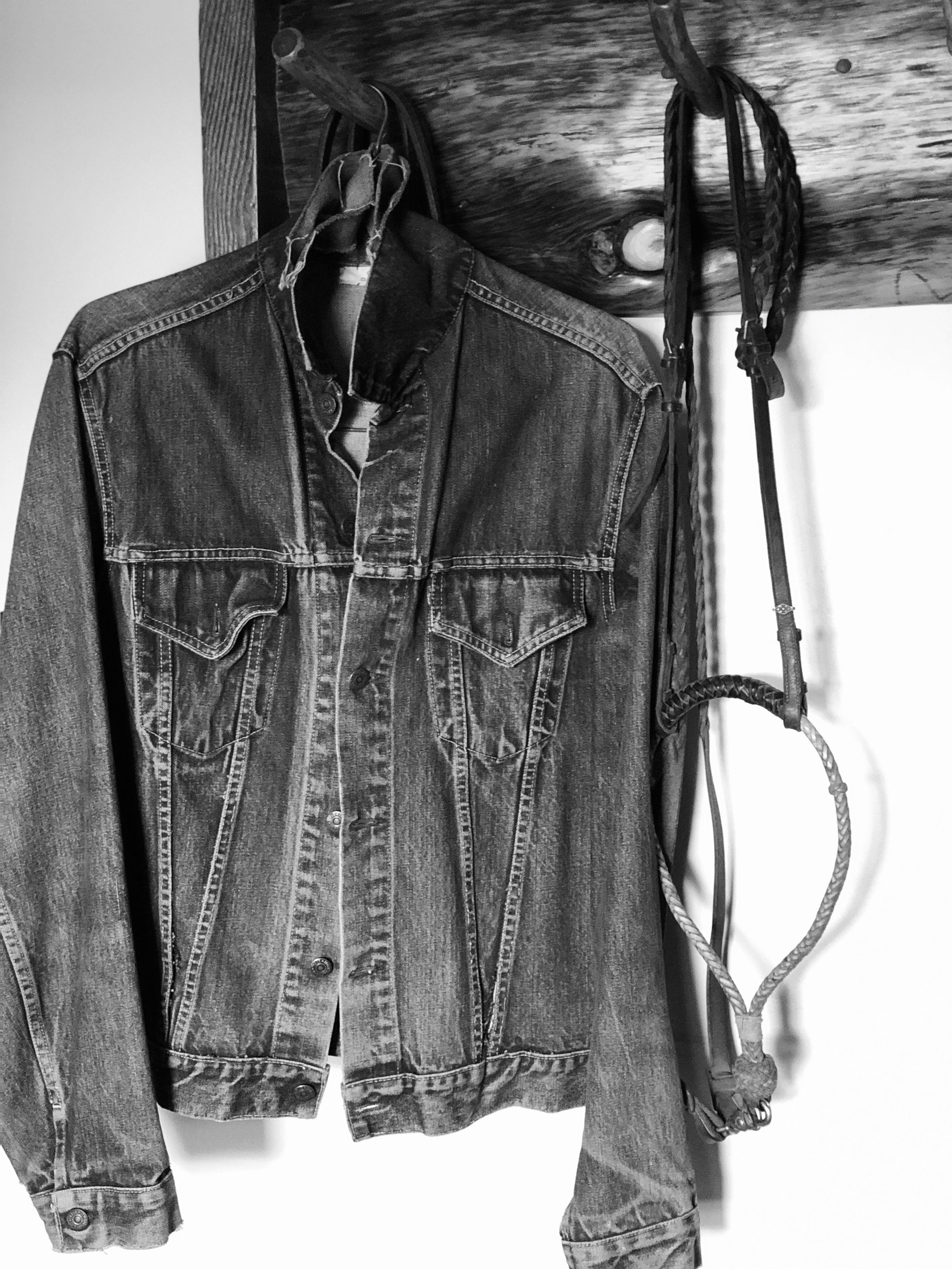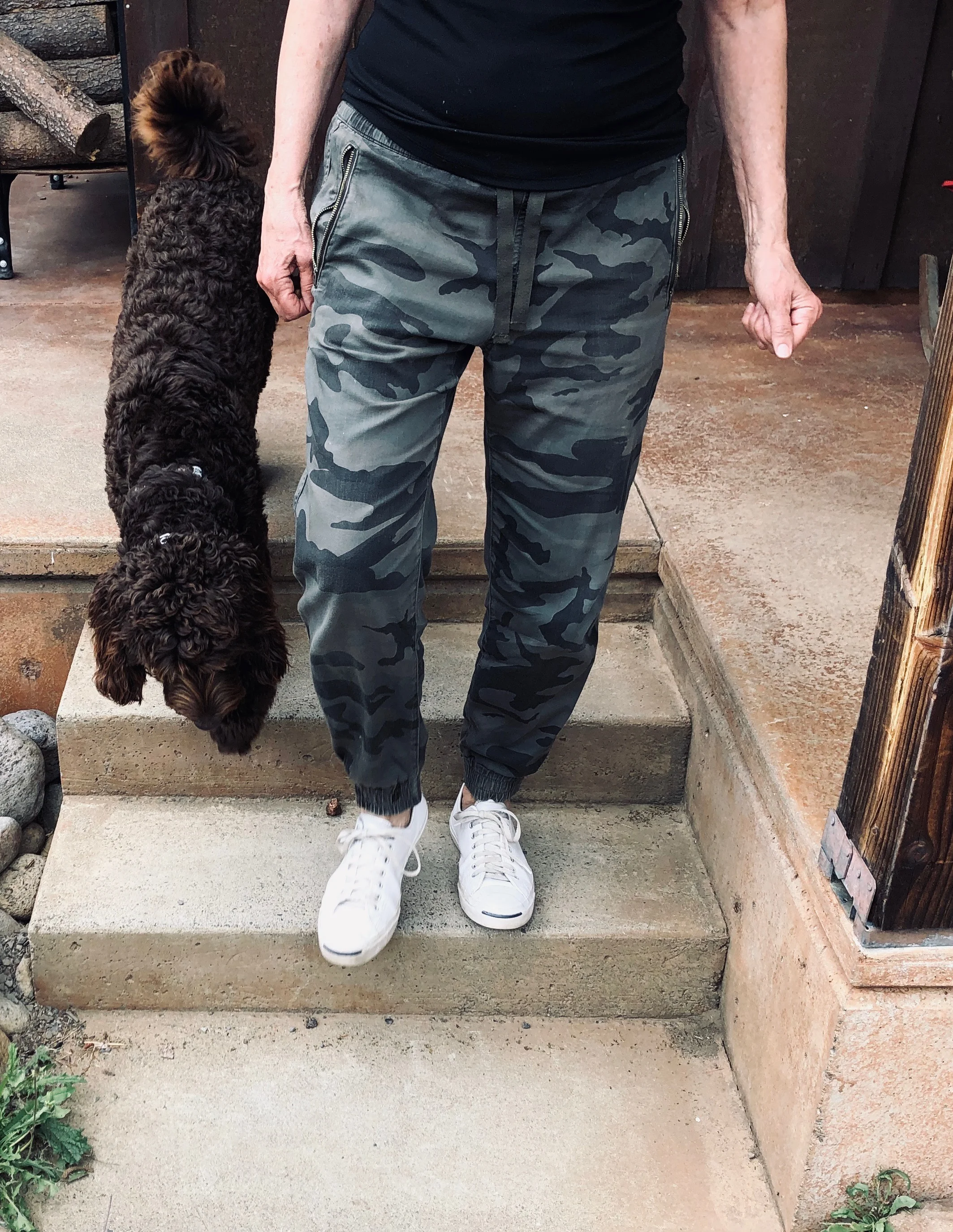Yesterday I wrote about a difficult experience that changed the trajectory of my life, and the other person at the center of it all was my dad. It was a hard and painful thing that happened with consequences that lasted for years, and the choices I made at that time as a result of trying to please him rather than trust myself will always be a part of my story.
But, thankfully it isn’t the whole story, nor is it the one that defines me.
In the same way, it isn’t the whole story of my dad either, nor the one that defines him. Like most of us, he was a mixture of the good, the bad, and the occasionally ugly. If we are only defined by the times we fall short, get it wrong, or miss the mark, that is only part of the story. It’s important to get the rest.
From the time I was a little girl, all I wanted was a horse. I read every book in the Black Stallion series, longed to go to Chincoteague Island to see if I could spot the real Misty from Marguerite Henry's book Misty of Chincoteague, and counted the days and saved my pennies until our annual summer vacation on the Oregon Coast, where I would ride bareback on the beach on my favorite horse from the Cannon Beach Stables. I drew pictures of horses, dreamed about horses, devoured stories about horses, and drove my dad crazy asking if I could get a horse. Finally, one day when I was about 8, he said “When you are 12, if you still want a horse, you can get one. You’ll have to earn the money yourself, but if a horse is what you still want, then a horse is what you’ll get.”
It’s hard for an 8 year old girl to earn much money. I was too young to babysit, no money was given out for chores, and the houses too few and far between for a paper route, but for the next four years, my dad had the cleanest car in the neighborhood, and the shiniest one as well. I washed his car every week, and twice a year it got a thorough wax. Having never waxed a car before, I asked him what I would need to do a good job. He replied “lots of elbow grease”, which is exactly what I asked to buy he took me to the hardware store.
Dad was in the insurance business, and one of his clients was the owner of Indian Ford Guest Ranch in Sister’s Oregon. Our summer vacations had moved east of the mountains, and we would spend a couple of weeks at the guest ranch, where I was the kid who drove all the wranglers crazy. Down at the stables in my turquoise jeans, turquoise fringed shirt, turquoise cowgirl hat, and of course, turquoise boots, hanging over the fence and, peppering them with questions, I came early and stayed late, until they shooed me back to our cabin. .
The head wrangler, Dale, owned the horse of my dreams. Her name was Missy, and no one rode her but him. Revered by everyone on the ranch, her disposition was sweet, her gait smooth, and her coat sleek. If I could have had any horse in the world, she would be the one I’d choose, but she belonged to someone else, and that was that.
By the time my 12th birthday rolled around I had saved exactly $350, and yes, I still wanted a horse.
My parents planned a visit to the guest ranch for my birthday. It was closed for the season, but Dale walked out of the barn to meet us. We chatted for a bit, and then he stood up on the fence, whistled long and loud out over the pasture, and just like in the movies, in the distance a lone horse appeared, head held high, galloping toward us. It was Missy. Dale brought her into one of the paddocks, threw her bridle on, and asked if I wanted to take her for a spin around the arena.
Me?
Missy?
Fifty-three years later, I can still feel the sensation of that first ride. Dale walked over, put his hand on Missy’s neck and said “Well, it’s time for me to sell her, and if you want her, she’s yours.”
His asking price? $350.
Because of my dad, I learned to work hard toward something that mattered. Because of my dad, I wasn’t just a little girl who dreamed about horses. I learned to ride, care for, and train them, and have one to call my own. Because of my dad, I went from a kid who drove the wranglers crazy to becoming a wrangler myself. Because of my dad, I experienced the magnificent freedom that can only be found on the back of a horse. Because of my dad I love horses to this day, and in a few short weeks, the love of my life and I will celebrate our 25th anniversary on a 5 day horse pack trip east of the mountains.
Some of my best memories of my dad are of him, wearing his old perfectly worn Levi jacket, and heading out together on horseback for a day of riding through the Ponderosa pines, side-by-side, talking about the stuff of life big and small. In 1988 he passed that old, perfectly worn Levi jacket on to me, and it wasn’t until years later, after he was gone, that I found his crumpled business card in the front pocket, a message in his familiar handwriting on the back…
Molly:
This carries many cherished memories of hide and seek among the pines of Indian Ford.
Love, Dad
When it comes to defining a life, it’s important to know the rest of the story.












